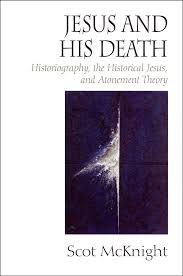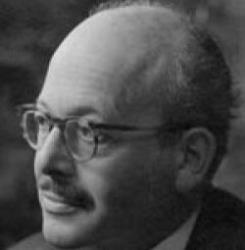I addressed Scot McKnight’s chapter on historiography in Jesus and His Death in order to respond to the central fallacy in his article in Christianity Today, The Jesus We’ll Never Know. McKnight is only half-correct when he claims that scholars have used normative historical methods to discover the historical Jesus (HJ). It is the missing half that is at the heart of the failure of the historical Jesus quest. In Jesus and His Death McKnight commented on the general lack of awareness among HJ scholars of historiography, but unfortunately McKnight himself misses a central point of the same historians he discusses, and the reason is not hard to find.
McKnight writes in the CT article:
First, the historical Jesus is the Jesus whom scholars reconstruct on the basis of historical methods. Scholars differ, so reconstructions differ. Furthermore, the methods that scholars use differ, so the reconstructions differ all the more. But this must be said: Most historical Jesus scholars assume that the Gospels are historically unreliable; thus, as a matter of discipline, they assess the Gospels to see if the evidence is sound. They do this by using methods common to all historical work but that are uniquely shaped by historical Jesus studies. . . .
[C]riteria were developed, criticized, dropped, and modified, but all have this in common: Historical Jesus scholars reconstruct what Jesus was like by using historical methods to determine what in the Gospels can be trusted.
I have emphasized McKnight’s key concern with historical methods. The methods used are “criteria” of various sorts to make judgments about the likelihood of any particular detail in the Gospels being historically true or not. (McKnight discusses “criteriology” in Jesus and His Death and is just as critical of its ability to yield objective results there.)
I attempted to address the details from McKnight’s discussion of historiography and the writings of other historians such as G.R. Elton in my previous post. That was meant as a detailed justification for my following observation here —
The fallacy of the HJ historical method
1. The agreed basic facts
History is first of all about facts that are public and known to have happened. The Second World War really happened. We do not need criteria to know that. We have public and primary evidence for it. It is not a fact that any sceptic can dispute. It is an existential fact whose existence by definition cannot be denied or overturned. (It is the same for the Holocaust, I add, since some have suggested my views on history would lead me to deny the Holocaust, too.) This is what all modernist historians agree on. Even postmodernists agree that the facts and events that we have labelled the Second World War really did occur.
2. Where the differences begin
Continue reading “Scot McKnight’s lament and the fallacy of the HJ historical method”


